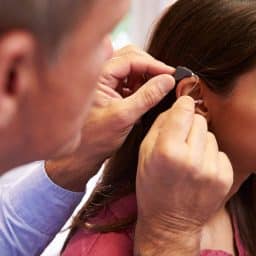Protect Your Ears This Spring

Spring weather means spending more time outdoors, barbecuing with friends, attending concerts and catching up on much-needed yard work. During these spring activities, it’s important to take measures to keep your ears safe. Below we review what causes hearing damage and provide three tips for protecting your ears this spring. What Causes Hearing Loss? Within…
How to Avoid Ear Pain on Airplanes

Whether traveling first class, coach or economy, there’s one thing everyone has in common when taking off from LAX: ear pain and pressure. Below we review what exactly causes this discomfort and how to avoid it. What Causes Pressure in the Ears on Airplanes? Your Eustachian tubes, which connect the middle ear to the throat,…
How Nighttime Noise Can Affect Your Hearing Health

No one likes when they are woken from a deep sleep by a car alarm going off or an ambulance rushing to Southern California Hospital at Hollywood. Nighttime noise is more than just a nuisance, it can actually be harming your health. Noise & Sleep There are four types of sleep you cycle through over…
New WHO Report Indicates 1 in 4 People Will Have Hearing Problems

The World Health Organization (WHO) recently released their first-ever World Report on Hearing. In the report, they estimate that as many as 2.5 billion people in the world – about one in four – will have hearing loss by the year 2050. About the Report The purpose of the World Report on Hearing is to…
Hearing Health Educational Seminar

While many of the COVID-19 restrictions have been an inconvenience, we have seen those with hearing impairment face additional challenges. Mask-wearing and social distancing make it difficult for people to communicate and impossible to read lips. Connecting with friends and family, therefore, is more important than it’s ever been, and we see today’s hearing aid…
What Is Mild Hearing Loss?

Hearing loss isn’t one-size-fits-all; different people experience different degrees. And while mild hearing loss may only be the first degree above normal, that does not mean it can be taken lightly. Below is a look at what it means to be diagnosed with mild hearing loss. Degrees of Hearing Loss The degrees of hearing loss…
Does Tinnitus Impact Your Life?

Hearing a buzzing, ringing, chirping or humming sound in your ears may not seem like a big deal, but this symptom of an underlying disorder can have a huge impact on your life. Tinnitus can disrupt your sleep, make it difficult to concentrate and cause your emotional reactions to be skewed. Disrupting Your Sleep According…
3 Causes of an Itchy Ear

While rarely the sign of anything serious, an itchy ear can be seriously uncomfortable. If your ears have been causing you discomfort, it may be due to one of the common reasons listed below. Swimmer’s Ear Swimmer’s ear is a type of infection of the outer ear caused by water becoming trapped in the ear…
What to Do When Your Hearing Aids Aren’t Working

Your hearing aids are your lifeline to the hearing world. While they are built to provide uninterrupted amplification, like all technology, they can sometimes malfunction. This means you may find yourself in a loud situation, like at Farmers Market L.A. where you cannot separate speech from background noise. Below is a look at the most…
Different Types of Vertigo

Do you ever feel as if the room is spinning around you even when you’re perfectly still? This sensation, known as vertigo, can make you feel as if you’ve just gotten off an amusement park ride at Disneyland even if all you did was get up off your couch. Below we provide an overview of the…